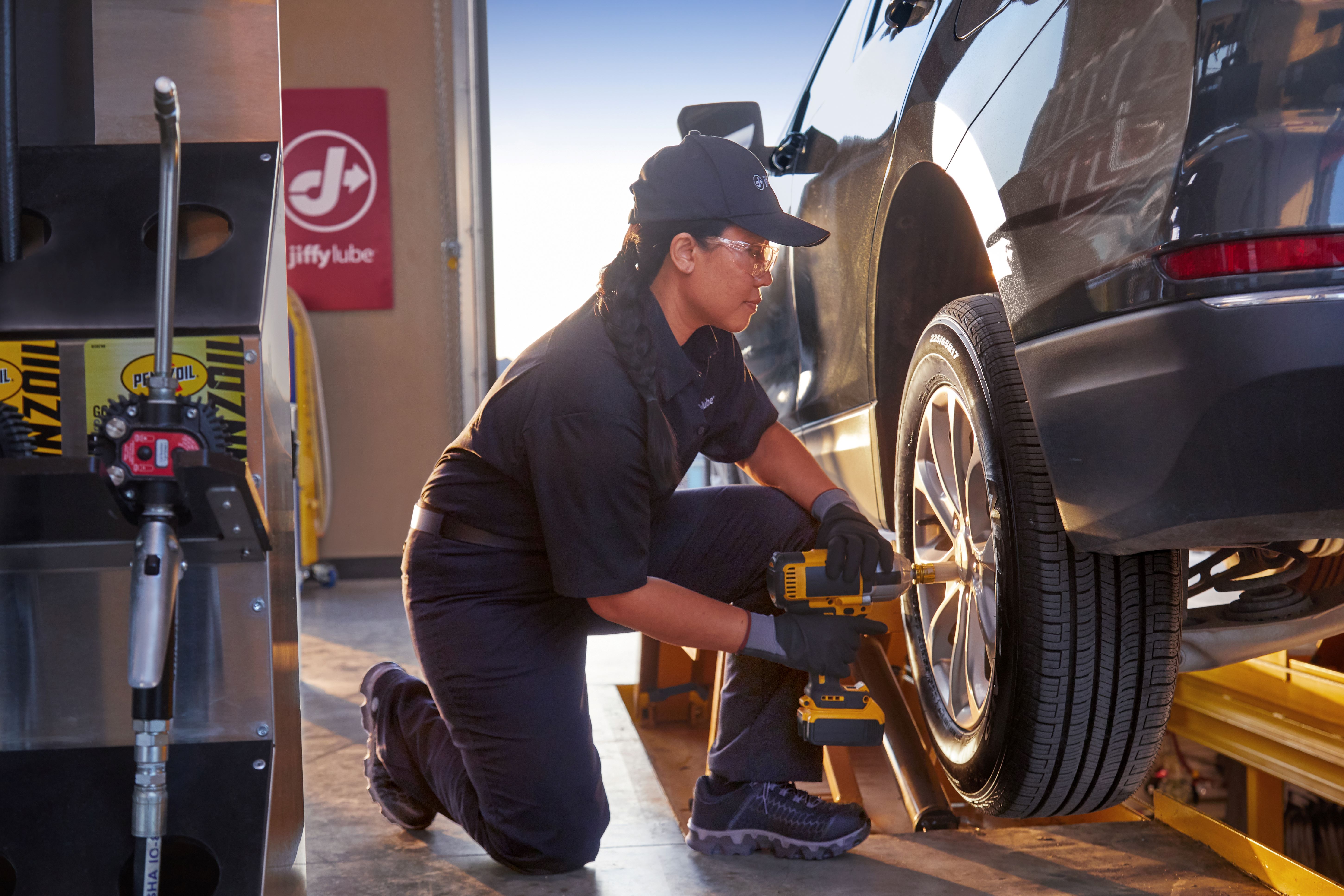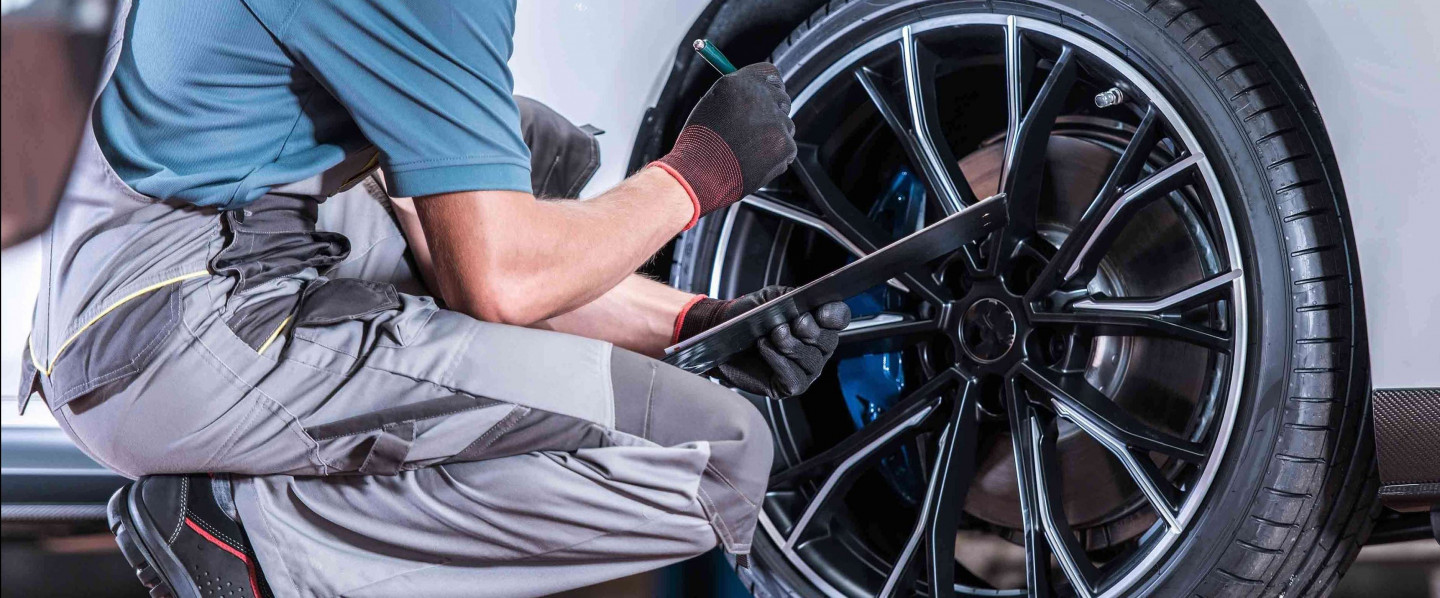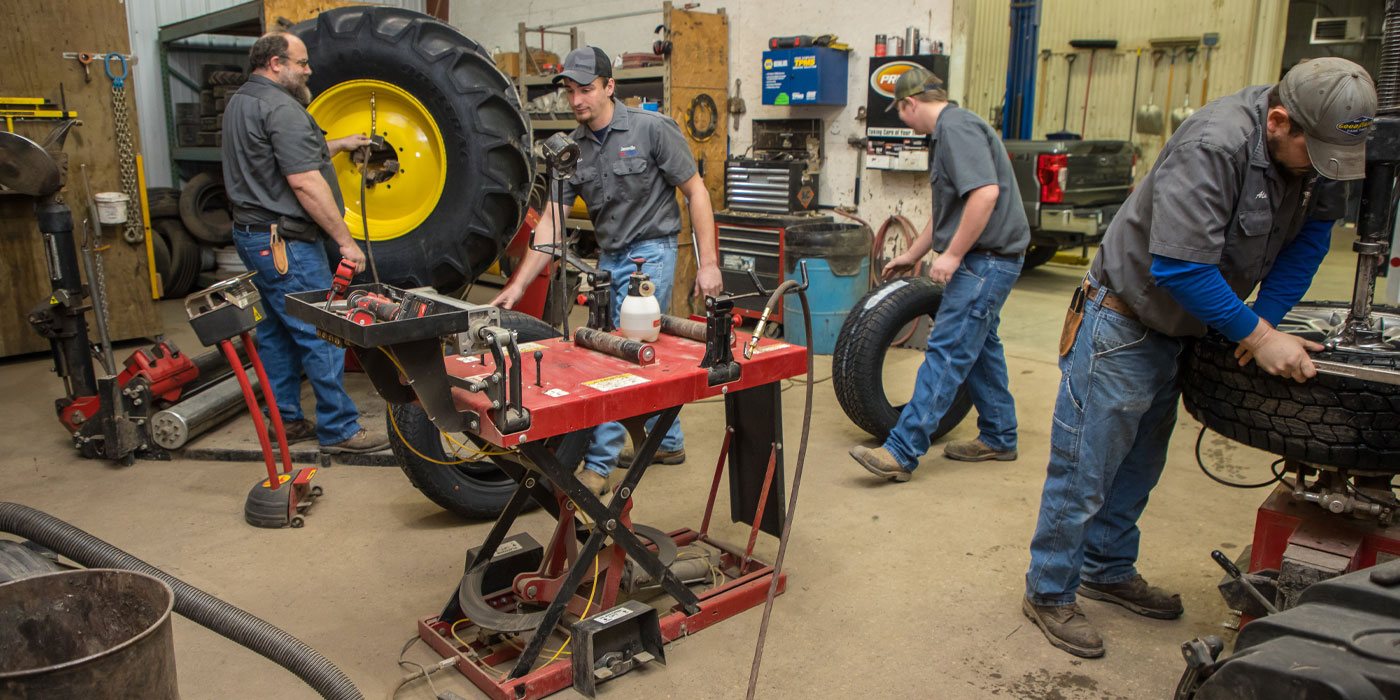Experience Accuracy with GMC Tire Service at Morris Tires
Experience Accuracy with GMC Tire Service at Morris Tires
Blog Article
Tire Service: The Influence of Weather
When it comes to guaranteeing optimal efficiency and security on the roadway, recognizing the impact of weather problems on tire service is critical. GMC Tire Service. In this discussion, we will certainly explore the complex partnership between weather conditions and tire solution, losing light on the significance of weather-specific tire upkeep methods and factors to consider.
Heat and Tire Performance
When subjected to high temperature levels, tires experience modifications in performance that can considerably affect car safety and security and handling. The warmth produced from extended driving or warm climate conditions causes the tire rubber to soften, bring about reduced walk life and enhanced wear. As the rubber ends up being softer, the tire's grip when traveling reduces, affecting braking distances and general traction. In severe cases, extreme warm can even trigger tire blowouts, presenting a severe safety threat to the automobile and its passengers.

Winter Effects
Cold weather condition conditions can have a considerable influence on tire performance and safety and security. As temperature levels decrease, tire rubber can set, causing decreased grip on icy or snow-covered roadways. In cool climate, tires may likewise shed atmospheric pressure a lot more swiftly, which can influence handling and fuel effectiveness. In addition, chilly temperature levels can trigger tire sidewalls to tense, boosting the threat of damage from pits or other roadway threats.
To minimize the results of chilly weather condition on tires, it is essential to regularly inspect tire stress and inflate them to the maker's advised levels. Using winter season or all-season tires created for winter problems can additionally improve traction and grasp on icy or snowy roads. Correct tire maintenance, including regular inspections for wear and damage, ends up being much more important during cooler months to make sure ideal performance and safety.
Rainy Conditions Influence
Tires with damaged treads are a lot more susceptible to hydroplaning, where a layer of water develops up in between the roadway and the tire surface, leading to loss of traction. To fight this, chauffeurs ought to consistently inspect their tires for appropriate walk depth and take into consideration investing in tires particularly developed for wet conditions.
In addition, rainy climate can likewise reduce visibility, making it testing for chauffeurs to see the roadway ahead clearly (GMC Tire Service). In such conditions, it is crucial to readjust driving rates as necessary and keep a safe following range to permit abrupt stops. Appropriately filled with air tires can great post to read additionally aid in keeping control on wet roads by offering much better handling and hold
Snow and Tire Security
Snow-covered roads present one-of-a-kind obstacles for motorists, stressing the significance of proper tire choice and upkeep. When driving in snowy conditions, having the appropriate tires can make a substantial distinction in safety and efficiency. Winter tires are created with special rubber compounds and tread patterns to offer far better traction on snow and ice contrasted to all-season tires. The much deeper footsteps and sipes of winter season tires aid grip the roadway much better, minimizing the have a peek here risk of gliding and sliding.

Additionally, motorists should take into consideration setting up tire chains in extreme snowy problems. Tire chains give extra traction by grasping the snow and ice, boosting stability and control. It is important to comply with supplier directions when installing and making use of tire chains to stop damage to the tires and automobile (GMC Tire Service). By choosing the ideal tires, preserving correct inflation, and considering additional grip help like tire chains, drivers can improve their security when browsing snow-covered roads.
Weather-Related Tire Maintenance
Weather-related tire upkeep includes an array of methods aimed at see making certain optimum tire function and durability in various climate situations. One essential aspect of weather-related tire upkeep is tire stress policy. Inspecting tire walk frequently and replacing tires when tread wear gets to a specific depth is vital for preserving grip and security in adverse weather condition.
Final Thought
In conclusion, weather condition conditions have a considerable impact on tire efficiency and safety. From heat impacting tire pressure and use to cool weather condition decreasing traction, it is vital to consider the weather condition when keeping and using tires.
In this conversation, we will certainly discover the elaborate partnership between weather problems and tire service, losing light on the value of weather-specific tire upkeep methods and considerations.

Report this page